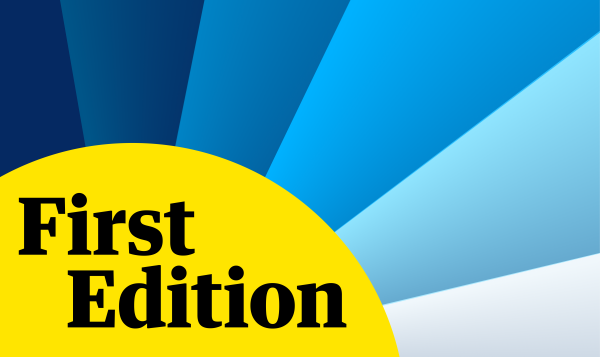
A week after the launch new flagship daily current affairs newsletter First Edition, Press Gazette spoke to The Guardian newsletter team about their strategy.
Alongside First Edition, The Guardian has launched ten other in-depth newsletters over the past year, including Tech Scape by technology editor Alex Hern, Pushing Buttons from gaming editor Keza MacDonald and Down to Earth from The Guardian’s environment correspondents.
In March, the outlet also launched Moving The Goalposts, a weekly women’s football newsletter.
The Guardian now claims to have over a million unique subscribers across its portfolio of 50 newsletters.
Guardian head of newsletters Toby Moses told Press Gazette: “It’s the closest we have in the digital space to a newspaper in that it’s a fixed point in time… It’s not just a constant stream of noise that you get on social media feed is a specific thing that you’re interested in and you’ve asked for.”
Moses explained that The Guardian’s main focus in the coming months is to shift more of its newsletter portfolio from being automated or curated newsletters with a brief summary of the news, to more dedicated, in-depth newsletters featuring original reporting and analysis.
“There’s definitely a trend going on, we’ve seen it with the rise of Substack, and individual high profile journalists going off and leaving their publications to do newsletters on their own,” he added.
“There’s been this personality-driven news trend recently. And publishers like The Guardian have seen how well it has done.”
He went on: “In terms of strategy, there used to be a concentration on click-through to the website from our newsletters. That was one of the main judges of success and I have strived to de-emphasise that.
“Newsletters are becoming something that are enjoyed in and of themselves as a different type of journalism. We don’t judge the success of our newspaper by how many people read the newspaper and then go to our website.”
The Guardian’s First Edition
From explainers, interviews and analysis to original reporting, the aim of First Edition is to offer the same kind of original content found in newsletters like Politico’s London Playbook or The New Statesman’s Morning Call but with a broader remit than just politics.
“It will feel like an email from a well-informed friend, or a well-informed friend who luckily has an editor,” said its editor Archie Bland (pictured, left – with First Edition assistant editor Nimo Omer).
“Each email should have some information in it you’d want to pass on as your own when talking with your mates in the pub.”
He added: “It feels like we have quite a lot of freedom to find stuff that is really interesting, that wouldn’t be appropriate in other parts of The Guardian.
“Newsletters feel like they offer an opportunity for a way to talk to readers quite directly that is distinct from what you can do on the website,” he went on.
“Our audience is just people who are interested in the world… And I think we’ll always be quite careful not to go off on like, very narrow tangents.”

Graphics for the new First Edition email newsletter.
Image: The Guardian
Since its launch, Bland and Omer have interviewed populism scholars on the French election, carried first-hand accounts of sexism in parliament from female MPs and covered the local elections on the ground in Sunderland.
Each edition of the daily email is also published as a post on The Guardian website.
“The ambitious thing we want to do is original reporting and offering insight that you couldn’t find in other parts of the paper,” said the newsletter’s assistant editor Omer. “To offer a piece of journalism that exists in its own space; that is another arm of The Guardian.”
Pictures: The Guardian
Email pged@pressgazette.co.uk to point out mistakes, provide story tips or send in a letter for publication on our "Letters Page" blog
